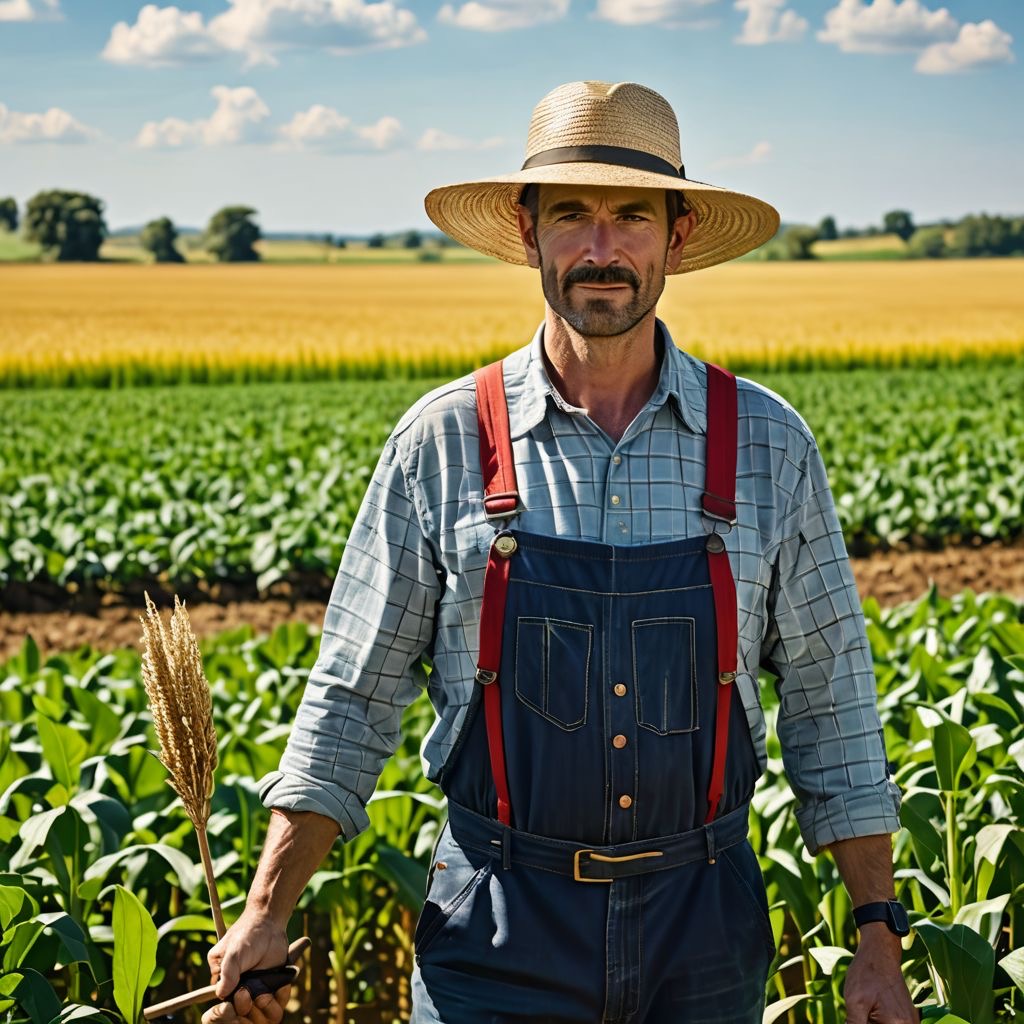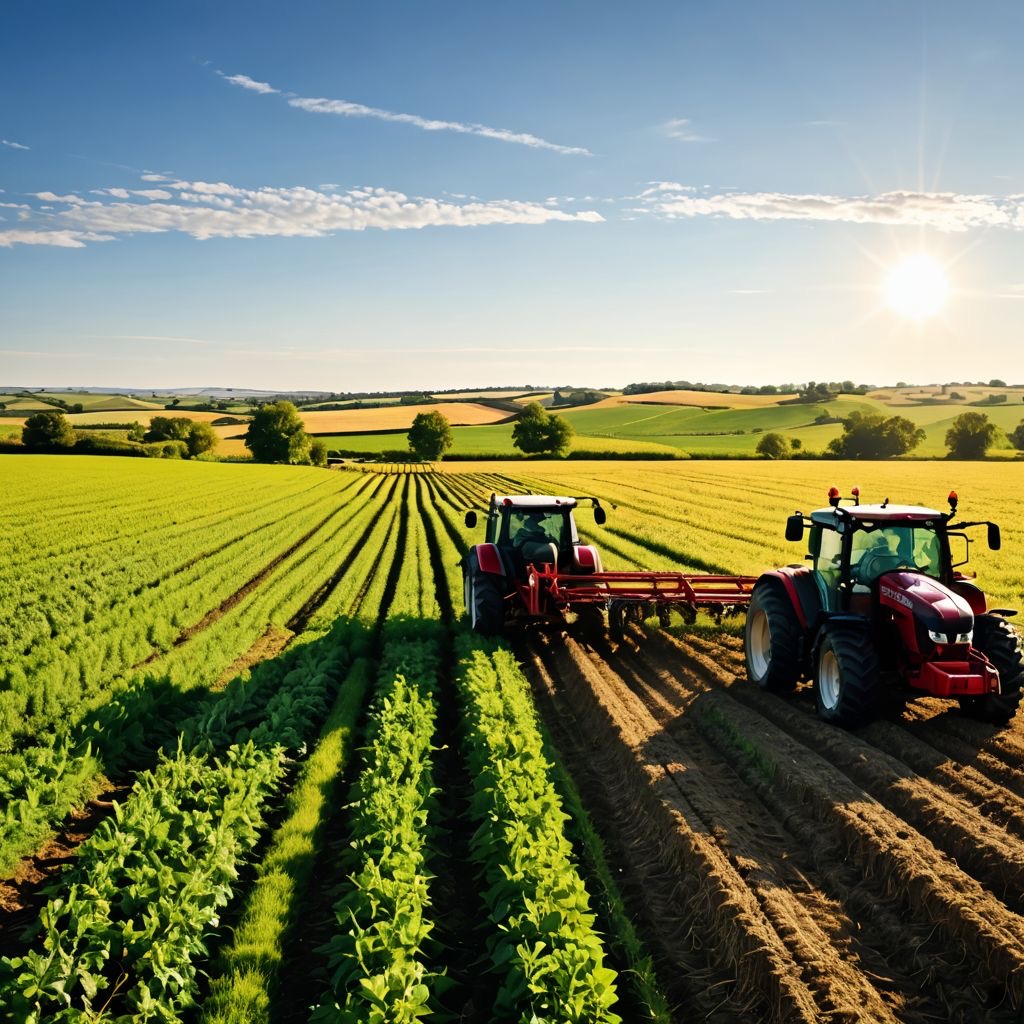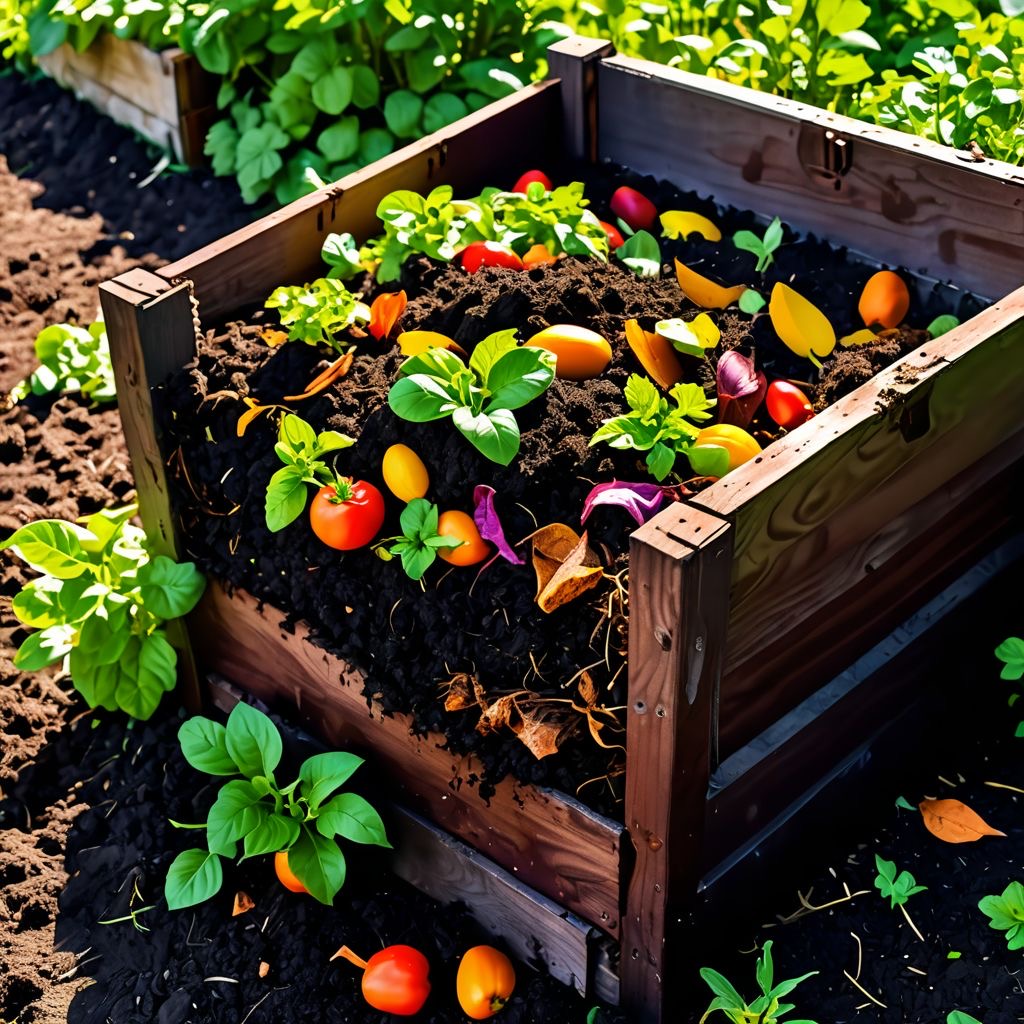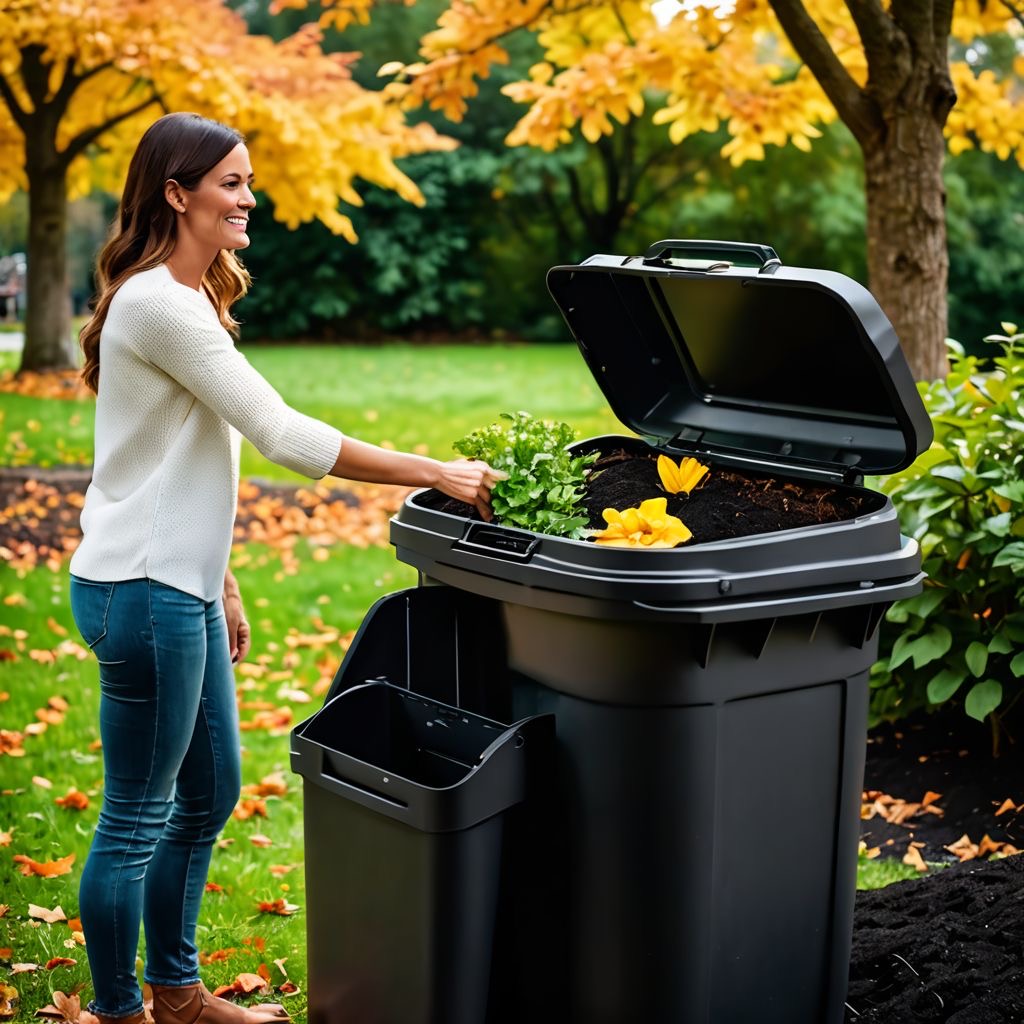
Table of Contents:
1. Introduction
2. What is the Rodale Institute?
3. History and Founding
4. Headquarters and Locations
5. Funding Sources
6. Goals
- 6.1 Research Initiatives
- 6.2 Education and Outreach
- 6.3 Advocacy and Policy
7. Achievements and Impact
8. Creating Sustainable Gardens: Practical Tips for Winnipeg Homeowners
- 8.1 Planning Your Winnipeg Garden
- 8.2 Choosing the Right Plants
- 8.3 Implementing Composting Techniques
- 8.4 Garden Ideas for Sustainability
- 8.5 Yard Maintenance Tips for Winnipeg Homeowners
9. Challenges Faced and Future Directions
10. Conclusion
Introduction:
Welcome, green thumbs and budding botanists! Have you ever stumbled into your local botanical garden, breathing in the fragrant aromas of blooming flowers and fresh topsoil, dreaming of transforming your home garden into a vibrant sanctuary?

If so, you’re not alone! Gardening is a joy that nurtures the soul and the earth, but getting started can feel like trying to solve a Rubik's Cube—blindfolded! Fear not! In this blog post, we’re embarking on a detailed journey through an organization pioneering sustainable agriculture and organic gardening practices that will make your rose garden bloom like never before.
Founded over seventy years ago, the Institute has become synonymous with healthy farming practices - think of them as the champions of compost! With a picturesque campus that houses cutting-edge research on sustainable agriculture techniques, their mission is to produce knowledge that educationally empowers both farmers and gardeners.
Contact us today for your free estimate.

The organization aims to foster a global movement towards organic practices, not just for the environment but for our health and well-being too.
In a landscape increasingly dominated by chemicals and conventional farming methods, they have valiantly championed organic approaches by integrating research, education, and advocacy.

Imagine having access to a treasure trove of garden ideas, from flower bed design to yard maintenance techniques that would make any Winnipeg homeowner proud. By the end of this post, you’ll not only learn about the Rodale Institute—its history, funding, and goals—but you’ll also walk away with practical gardening tips that can transform your backyard landscape design.
So grab your gardening gloves, and let’s dig into the rich soil of knowledge provided by the Rodale Institute, where sustainable practices blossom like wildflowers in spring!
Contact us today for your free estimate.
2. What is the Rodale Institute?
It is a non-profit organization dedicated to pioneering research in organic and regenerative agriculture. It’s like the wise old sage of sustainable agriculture, imparting wisdom and knowledge for those looking to grow their organic practices, whether in a quaint home garden or on expansive farms. This organization focuses on proving the benefits of organic methods, both in terms of human, plant and soil health and environmental impact.
Its research has substantiated that organic farming can yield crops that are not only more nutritious but also beneficial to the surrounding ecosystem. The commitment to such sustainable practices is evident in various initiatives aimed at educating the farming community and the general public about the importance of organic methods.
By exploring various topics from composting to plant cultivation, the Institute embraces the community of growers who recognize that the future of agriculture lies in sustainability and protecting the planet's health.
3. History and Founding of the Institute:
Its birth can be traced back to 1947, when journalist and publisher J.I. Rodale founded the organization to explore and promote organic farming. Back then, the term "organic" was hardly a buzzword. With the establishment of the Institute, J.I. Rodale laid the foundation for a future where farmers would be encouraged to utilize sustainable practices instead of relying on chemical inputs, echoing a belief that goes back to ancient principles of agriculture.
The Institute has since grown and expanded, aligning itself with trends that emphasize organic methods. After several decades, it has become a leading authority in organic farming research and education, echoing the ideals first proposed by Rodale himself. In a time when conventional agriculture practices were gaining traction, the Rodale Institute stood its ground, aiming to enlighten farmers and consumers about the advantages of a healthier and more sustainable approach.
4. Headquarters and Locations:

The Institute is headquartered in Kutztown, Pennsylvania, a charming town nestled in the Appalachian Mountains, where the rolling hills provide a backdrop for study and exploration. This location houses sprawling acres of experimental farms and gardens that serve as living laboratories for research and education about organic practices.

While its headquarters is in Pennsylvania, their influence extends far beyond those borders. The organization provides resources, webinars, and workshops to urban and rural communities alike, uniting the gardening and farming networks. Many people, including homeowners in Winnipeg, can benefit from its educational materials, regardless of geographical constraints.
Contact us today for your free estimate.
5. Funding Sources:
You may wonder how they can afford to run their groundbreaking projects. Funding for this essential organization comes from various sources, including grants, donations from generous individuals, partnerships with businesses, and, dare we say—fundraising events that might involve some delicious, organic produce!
The Institute increasingly collaborates with universities, agricultural organizations, and government entities to obtain resources and support. By securing such diverse funding, they can effectively conduct research projects, offer educational programming, and continue to advocate for policies that benefit both farmers and the environment.
6. Their Goals:
The overarching goals of the organization are pivotal to its mission of nourishing an organic revolution. Simply put, they strive to redefine agriculture to create a healthier planet, healthier soil, and healthier food systems. Let's peel back the layers of the Institute’s various goals:
6.1 Research Initiatives
First and foremost, they conduct pioneering research that examines the effectiveness of organic methods compared to conventional practices. This research encompasses diverse areas such as crop rotation techniques, soil health improvements, and pest management solutions. By providing data-driven evidence, the Institute aims to validate the efficacy of organic methods and inspire farmers to adopt these practices.
6.2 Education and Outreach
Perhaps one of the most impactful aspects of the Institute is its commitment to education. They regularly host workshops, webinars, and events aimed at farmers, gardeners, homeowners as well as landscape and lawn care professionals looking to enhance their knowledge of eco-friendly practices. This outreach entails developing practical educational materials and collaborating with universities, local schools, and community organizations to inspire the next generation of growers.

6.3 Advocacy and Policy
Advocacy plays a vital role in furthering the goals of the Institute. By engaging in grassroots efforts and influencing policymakers, they push for more environmentally friendly policies while promoting organic practices at state, national and international levels. The goal is to cultivate a landscape where sustainable practices are not just encouraged—they are mainstream!
7. Achievements and Impact:
The Rodale Institute has accomplished remarkable feats in its journey, impacting the world of organic farming and gardening significantly. With numerous studies backing its efforts, the Institute has played a key role in demonstrating that organic practices are not just a "nice-to-have" but a necessity for maintaining ecological balance.
From fostering the adoption of regenerative techniques among farmers to enhancing crop yields, the organization has been a beacon of hope for both plant lovers and environmentally conscious individuals. Plus, let's face it, if there's anyone who can get your plants growing like crazy, it's the Rodale Institute!
Ready to chat about your landscaping goals?

Reach out by call or text to: 204-229-9789 or click here to submit your information today to arrange a “no obligation” introductory phone call. We look forward to helping you transform your yard.
Tips on how to prepare for a consultation meeting with a landscape contractor
8. Creating Sustainable Gardens: Practical Tips from the Rodale Institute:
Now that we’re all pumped up about this organization and its amazing contributions to organic gardening, let’s turn our attention to some practical tips inspired by their research—after all, every great gardener needs a plan!
Contact us today for your free estimate.
8.1 Planning Your Home Garden
Creating your home garden should start with a solid plan. Take a look at your backyard or patio, and envision what you want to grow—a sprawling flower garden, perhaps a rose garden, a bountiful vegetable patch, or perhaps even a soothing meditation space surrounded by plants. Remember, thoughtful garden design is essential, and factors like sunlight, water access, and soil type will influence your decisions.
For local homeowners, our “Winnipeg-style” climate is somewhat unique. Consider seasonal changes and select plants that are hardy enough to withstand our weather. It’s also worth assessing space to ensure that your garden design ideas allow for proper spacing, ensuring plants have enough room to thrive.
Ready to transform your Winnipeg yard with 10-best perennial suggestions?
8.2 Choosing the Right Plants
When indulging in the art of gardening, the right plant selection is key! Start with native species or perennials that flourish in our Winnipeg climate, as they’ll naturally be more resilient and require less maintenance. Examples of great choices include coneflowers, black-eyed Susans, and various grasses that will provide visual interest.
Make sure to pair plants synergistically; for example, combining flowers with complementary blooming times can create a stunning visual effect throughout the growing season. With fragrant species like lavender, your flower bed design will have both vibrant colors and delightful scents, turning your garden into an outdoor oasis.
8.3 Implementing Composting Techniques

Here’s the soil sister (or brother) secret: composting! It’s a fantastic practice that enriches your garden soil, allows you to recycle plant waste, and promotes a robust microbial community. Set up a compost bin in your yard and start adding kitchen scraps, yard waste, and even shredded leaves.
Not only will this reduce your waste output, but the nutrient-rich compost produced can be utilized to improve the soil quality in your home garden. It’s like giving your plants a five-star meal made from your own leftovers—talk about winning!

Transform your Winnipeg yard with Sunshine Maintenance & Landscaping
8.4 Garden Ideas for Sustainability
Consider incorporating permaculture principles into your garden design. This might include creating hügelkultur beds—essentially raised garden beds made from decaying wood and other plant materials that naturally retain moisture. With water conservation becoming increasingly vital, these innovative and eco-friendly designs could serve as excellent additions to your backyard landscape.
Planting various crops together in a technique called companion planting can also improve productivity while minimizing pests. Grow marigolds alongside your tomatoes or peppers to confuse those pesky bugs, and you’ll be on your way to a thriving garden!

8.5 Yard Maintenance Tips for Winnipeg Homeowners
Maintaining a home garden requires ongoing attention, and this is especially true in Winnipeg. The damp conditions can make gardens prone to pests and diseases, so frequent inspections of your plants help you spot early warnings.
Schwach your growth with a good mulching practice using organic materials like shredded bark or straw. Not only does it retain moisture, but it also suppresses weeds and eventually breaks down, enriching the soil. As the season progresses, monitor water requirements, especially during dry spells, and ensure to stick to organic pest management practices—it’s kinder to the ecosystem!
Contact us today for your free estimate.
9. Challenges Faced and Future Directions
Even the mighty Rodale Institute isn’t immune to challenges. Despite its influential work, the organization faces obstacles in scaling up organic farming practices and adapting to climate changes. Transitioning existing operations that have been reliant on conventional agriculture can be daunting for some farmers. Additionally, market demand fluctuates, with organic products sometimes being pricier than conventional alternatives, thus making it difficult to sway consumers.
As we look to the future, the Rodale Institute aims to continue refining its research efforts, fostering collaboration among agricultural communities, and advocating for policy changes that support sustainability and health. Also, in efforts to reach more gardening enthusiasts, expanding its outreach through digital platforms and social media could amplify the organization’s impact.
Contact us today for your free estimate.
10. Conclusion:
In a world increasingly focusing on sustainability and ecological health, the Rodale Institute serves as a guiding star for those who wish to grow organic gardens and promote environmentally-conscious farming and residential yard practices. From its humble beginnings in 1947 to becoming a powerhouse in sustainable practice research, the Rodale Institute has covered significant ground in research, education, and advocacy.
Winnipeg homeowners, regardless of your gardening experience, have an incredible opportunity to align your practices with the initiatives championed by the Institute. By implementing tips such as composting, companion planting, and understanding the importance of native species, your backyard could be transformed into a flourishing haven of floral beauty and sustainable practices.
So, the next time you’re out in your home garden, remember the lessons learned from the Rodale Institute. Embrace the idea of gardening not just as a hobby but as a pathway to creating a better future for ourselves and the planet! Whether you cultivate a flower or vegetable garden, use organic compost, or simply admire plants in your neighborhood, recognize that every effort counts in this global movement toward sustainability. Now, get out there and plant something beautiful!
Don't miss out! Click here to subscribe today and get the latest blog posts delivered straight to your inbox.
Contact us today for your free estimate.



